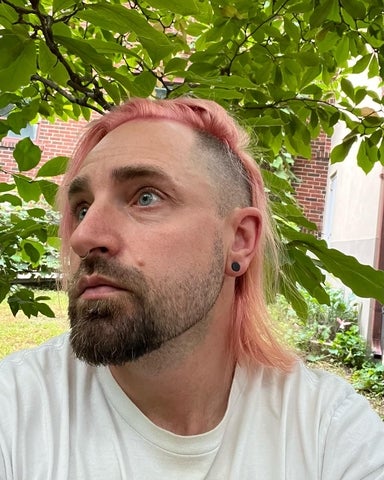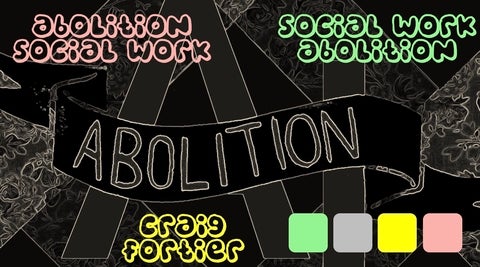
Pronouns: They/Them
Education
Ph.D. York University – Sociology
MSW, University of Toronto
Research and teaching interests
Settler colonialism; social movements, abolitionist and decolonizing social work; popular culture and radical change; trans-disciplinary social justice pedagogy; urban memorialization; accounting history; Indigenous & settler relationships, colonization/decolonization; Indigenous theory; migrant justice movements; nationalism and sovereignty; queer, trans*, and non-binary participation in sport; and baseball history.
Courses taught in SDS
ARTS 140 Inquiry & Analysis (Social Change & Social Development)
SOCWK 120R Introduction to Social Work
SDS 331R Social Inequality, Social Justice, and Social Action
SDS 411R Decolonization and Social Action
SDS 441R Popular Culture and the Radical Imagination
Cross-Appointment
Gender and Social Justice department
Recent & Ongoing Projects
For a full list of current and historical work, please read Craig's CV here.

Emergent Encounters Action Project
Emergent Encounters is an experiential learning collaboration developed by Craig Fortier (Social Development Studies) and Matthew Borland (Systems Design Engineering). This project brings together students, faculty, and community members from various discipinary and social backgrounds to grapple with social justice issues, develop relationships, and plant the seeds for long-term and sustained social action.
Abolition Social Work / Social Work Abolition
Abolition Social Work / Social Work Abolition is the forthcoming edited collection by Craig Fortier, Edward Hon-Sing Wong, and MJ Rwigema set for release in the Spring 2024 on Between the Lines Press. This volume brings together social workers, educators, activists, language keepers, Indigenous Elders, and people for whom social work is/was a consistent part in their lives to discuss social work's carceral role in our society and imagining our way out of it.


The Humber is a Haunting
The Humber River is officially memorialized in Toronto history in a way that renders Indigenous peoples as disappeared or ghosts that haunt (but are never present) in the modern city. This paper argues that through attention to graffiti and other resurgent practices like the Three Sisters garden and medicine walks developed by local trans* and Two-Spirit urban Indigenous folks, the continued relationship of Indigenous peoples to this important waterway is maintained and sovereignty is asserted in contestation to official urban municipal policies and protocols.
Speaking Fruit
Conceived by Toronto artist Farrah Marie Miranda, Speaking Fruit is a mobile, roadside fruit-stand and design studio that feeds the movement for migrant farmworker rights. Drawing on curatorial strategies, Miranda invited artists, academics and community organizers Evelyn Encalada & Gabriel Allahdua (Justice for Migrant Farmworkers), Heryka Miranda (choreographer), Luca Lucarini (filmmaker), Lal & Ruben Esguerra (sound design), Ryan Hayes (graphic designer / printmaker), and Craig Fortier (principal investigator) and dozens of migrant farmworkers to participate in this collaborative production.


A Field of Dreamers on Stolen Land: Practices of Unsettling on the Recreational Softball Diamonds of Tkaronto
This paper documents the emergence of the Field of Dreamers Cooperative Softball Association, a trans*/non-binary and radical centered softball league in downton Toronto. Through an ethnography with players and coordinators we explore the ways that the league seeks to re-imagine its relationship to public space, its responsibilities to decolonization, and its prefiguration of recreational sports outside of toxic masculinity, white supremacy, and body shaming that dominate in mainstream leagues.
The Settler Colonialism of Social Work and the Social Work of Settler Colonialism
This paper investigates the history and current practices of social work in Canada through a settler colonial lens. Investigating early forms of social work/social working, this paper argues that the colonial responsibility and power left open by the abandonment of the Indian Agent system in Canada was taken up by social workers in the 1950s, leading to the 60s scoop, and structuring the current foundations of the profession today.
